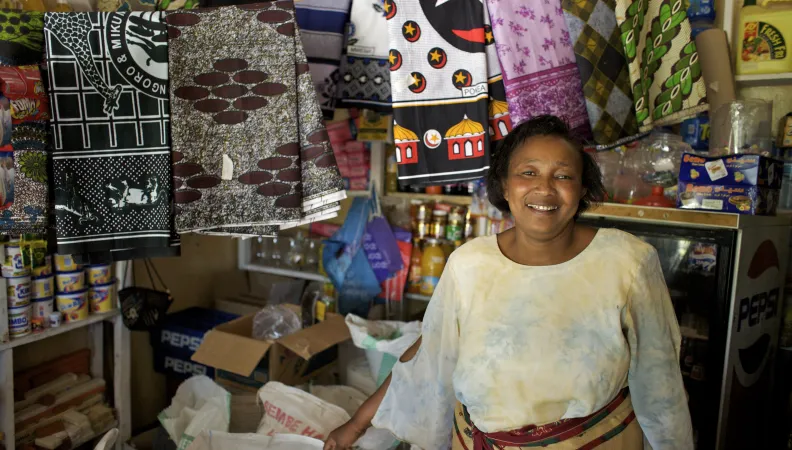Share the page
Proparco supports BRAC International Microfinance’s capital markets programme
Published on

The international arm of one of the world’s largest development organisations, BRAC, has launched a capital markets debt programme that will secure financing for its microfinance operations for the coming decade. Proparco, with a 25 million dollars facility, have participated to the launch of the programme alongside Global Partnerships.
BRAC was founded in Bangladesh in 1972 by Sir Fazle Hasan Abed and is one of the largest, most innovative and impactful development organisations of the world. BRAC has been one of the pioneers of microfinance since it first started in 1974. BRAC now operates in six countries outside of Bangladesh - Myanmar, Tanzania, Uganda, Rwanda, Sierra Leone and Liberia. Together, these six entities, operated by BRAC International Holdings B.V., serve nearly 700,000 clients, 96% of whom are women.
BRAC International Microfinance’s mission is to provide a range of financial services responsibly to people at the bottom of the pyramid. It particularly focuses on women living in poverty in rural and hard-to-reach areas, to create self-employment opportunities, build financial resilience, and harness women’s entrepreneurial spirit by empowering them economically.
Proparco, along co-investor Global Partnerships (an impact-first investment fund manager) has participated to the launch of the transformative international capital markets debt programme which aims to secure reliable and consistent funding that will allow it to grow significantly in existing countries and expand into three new countries over the next five years. By 2026, BRAC International Microfinance is expected to grow its client base by more than one million, the majority of whom will be women.
For Proparco, to collaborate for the first time with BRAC is fully in line with its mission and strategy. The project aims to develop sustainable financial inclusion, especially for women, in priority countries for Proparco. As such, the project is qualified for the 2X Challenge, an initiative launched by the DFIs of the G7 countries in 2018 to strengthen the economic role of women. It should also benefit to more than 130 000 micro entrepreneurs. By offering BRAC an innovative financing structure, Proparco will allow the institutions to issue bonds in the developed markets in the long term and expand its funding base. It would make BRAC a pioneer among microfinance groups at a time when responsible investment is progressing and capital markets are becoming more attractive to impact projects.
"Proparco is proud to collaborate for the first time with BRAC, a leading player in microfinance. We are glad to participate to the launch of the capital markets programme with BRAC and its six entities, located in priority countries for Proparco. Supporting the financial inclusion of populations that are usually excluded from formal financial services is a mission that BRAC achieves with a great examplarity. We hope this first deal will pave the way for other operations between our two entities" said Thomas Eloy, Head of Debt Department at Proparco.
“Launching a capital markets debt programme represents a step-change in how BRAC International will finance the delivery of its microfinance products and services across all of its operations in Asia and Africa'' said Shameran Abed, the Executive Director of BRAC International and Managing Director of BRAC International Holdings B.V. “We are now in a stronger position to secure continuous funding to provide far greater value to the hundreds of thousands of clients that we already serve and to achieve greater impact at scale by serving hundreds of thousands more who are outside of the formal financial system.”
“BRAC International Microfinance has a demonstrated track record of empowering women and enhancing the economic resilience of households living in poverty” said Mark Coffey, the President and Chief Investment Officer at Global Partnerships. “Global Partnerships is proud to expand its relationship with the organization by providing impact-first capital from its affiliated funds to help the organization deepen its inclusion and scale its impact.”
